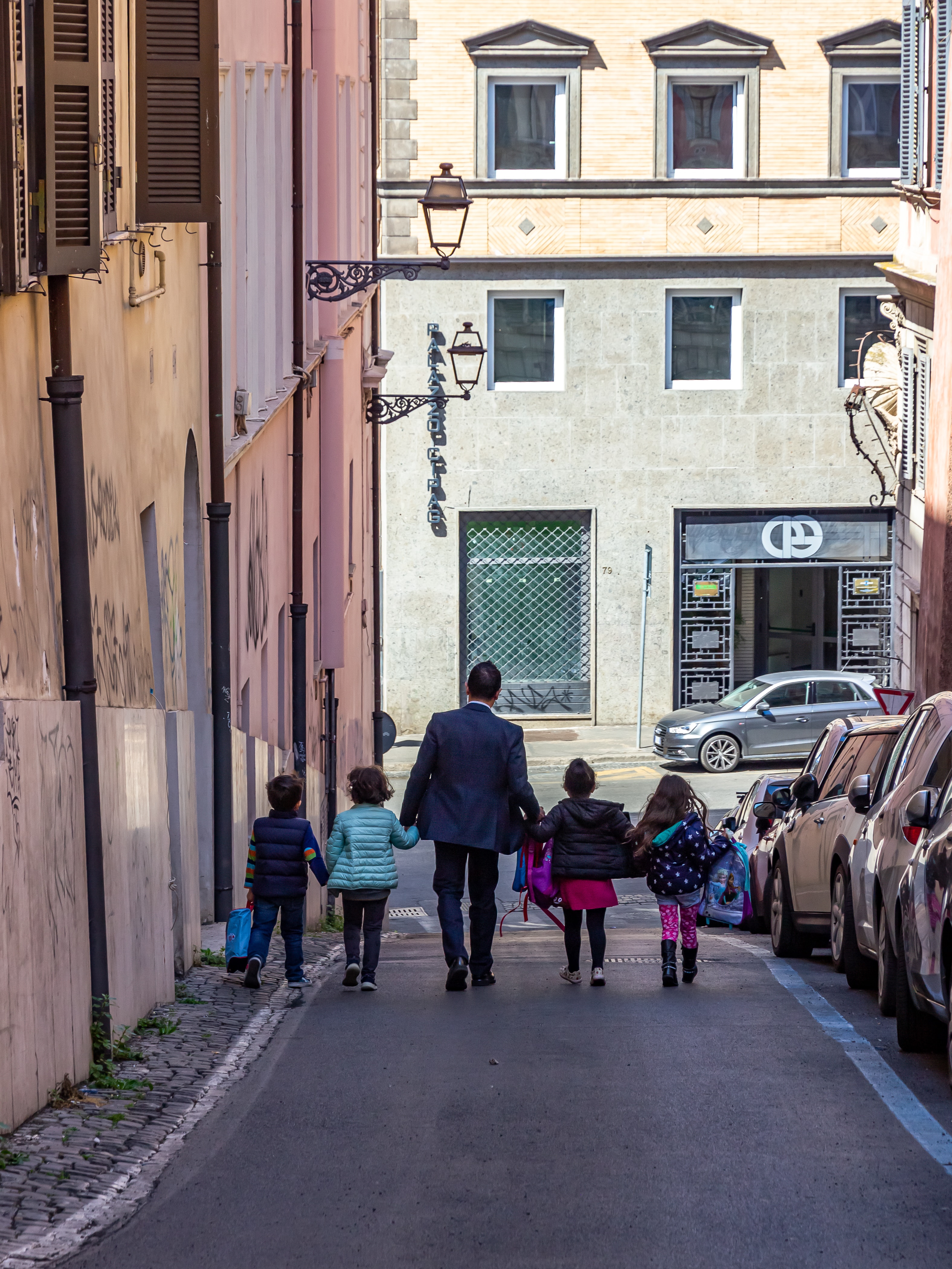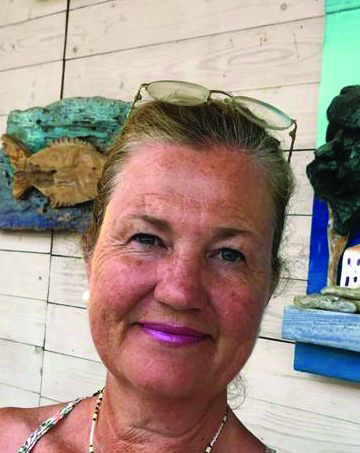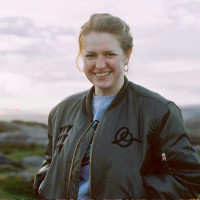Nicky, now living in South Yorkshire, has lived in Prague where she and her husband set up a school, and Harare where she became a teacher. Having trained to teach History initially as there was a gap in the school staff team, she fell into teaching R.E., Global Perspectives and becoming a head of department. We chatted about her experiences of providing education abroad.
Interview with Katie Bojang
K
What led to you and your husband starting a school in Prague?
N
The Czech Republic had just opened up to internationals (after the fall of communism), so there was a shortage of international education. The international schools that existed were very much geared for their own profit…
It was really important that our kids were exposed to British National Curriculum so they could do that in this school and then sort of slot back into the British system. That didn't exist at the time.
Today, despite plenty of Czechs now studying there as well, they are still choosing the British Curriculum.
K
Is that because it gives them increased mobility later on?
N
It's a good qualification and it has international prestige which helps if you plan to travel. I also think to some extent Czechs can see their own educational system as slightly parochial. It’s not just about the qualification but how it is achieved in the learning process. The British System develops things like critical thinking, so it has its selling points.
K
What impact did it have on the local community with both Czech and international children attending the school?
N
The school has always functioned as a hub in that sense that they pray, that they want to witness, they want to interact. As Christians, one of the things that they're very interested in doing, given where they're positioned geographically, is to develop diplomatic skills. They would have a lot of Ukrainians, Russians, Southeast Asian kids in the community together.
They make sure to model good relationships between all stakeholders, including between students, staff and parents. It’s about what you are developing in your kids: the ability to get on. Because if Christianity is about love, then it's good to be able to develop good ways of communicating. I think in the community it has that impact.
I know they also seek to give charitably to the community where there is need as well.

K
It sounds like being able to run a Christian school in Prague had a good impact because of the team’s faith, not just quality education. Is that the same as what you experienced in Harare?
N
My experience in Harare was Christian in that they made a point of teaching RE and they had hymn practice. But I would say it was kind of skin deep. If you were really into God, then you would go to Scripture Union. But it was much more notional.
But because I was a Christian, I connected with the other Christian teachers and the other Christian students, and I could build that way, and the school didn't stand in the way.
“Do not be terrified…there you saw how the Lord your God carried you, as a father carries his son, all the way you went until you reached this place.”
K
How did you end up in Prague and Harare in the first place?
N
We prayed. At the time in the UK, my husband was a civil engineer. He was working in the property development market and in the early 1990s, there was quite a serious recession, so we looked to go abroad, but we also prayed, ‘Lord, where do you want us to go?’
There were opportunities in the Czech Republic. And when we prayed, God gave us a very specific scripture, which was Jeremiah 29:5-8 where it says,
“Build houses and settle down; plant gardens and eat what they produce. Marry and have sons and daughters; find wives for your sons and give your daughters in marriage, so that they too may have sons and daughters. Increase in number there; do not decrease. Also, seek the peace and prosperity of the city to which I have carried you into exile. Pray to the Lord for it, because if it prospers, you too will prosper.”
It was a very missional scripture. It felt to us that God was saying, ‘Go and live there’. So that was why we went.
It was interesting timing in our lives that the recession pushed us out, but the country was opening up. That was not why we went there. But looking back, you can see, well, God was sending a lot of Christians.
A lot of international companies would send people only for two or three years maximum, because it was too difficult. We were very unusual to be there for eight years. We also had pastors come and teach us in the church – that was a help since it was difficult living in a communist country.
Eight years later, again, we prayed. We kind of came to a stale mate with the Czech Republic, because the guy that my husband was working with increasingly had different values. We thought, ‘Do we go back to the UK? Do we stay in Europe? What do we do?’
Rupert went out to Zimbabwe and South Africa, and when he came back, I had been praying and had a scripture: Deuteronomy 1:29-31,
“Do not be terrified…there you saw how the Lord your God carried you, as a father carries his son, all the way you went until you reached this place.”
It was Moses reciting how the children of Israel had gone into the Promised Land. And it was really interesting. It wasn't going to be easy. There were giants that lived in the land. There were all kinds of hazards, and we were quite conscious of that.
We were conscious of the scorpions and the snakes and the diseases and the terrorism and the government at the time, quite a deal of political chaos. But God was saying, “I get that, but I'm going to carry you like a father carries a child. So I will take you into the midst of that and you will still thrive because that's where I want you to be.”
When Rupert returned from the trip, he brought reports of what was happening in Zimbabwe which match a lot of what I was reading in Haggai at the time as well.
Things like, ‘You build your panel house and My house lies in ruins’. Rupert came back and he said, ‘oh, one of the big churches there, it's like they've just split. They're having all kinds of difficulty’. So that was interesting, was like, the church is struggling. Then there was another scripture about, ‘you sow seed, but you don't know what you're going to reap’. They had just had the ‘no’ vote on the land, so the farmers literally were sowing, and they were saying, ‘We don't know what we're going to get out of the land at the end of the season, because we don't know if the land is going to be ours or not’. So looking at those things, we could say, ‘Looks like God is saying yes’. And on the strength of that, we went.
'Pray on behalf of the city for in its prosperity yours depends.'
K
That's really helpful to hear! For many Christian students, the big question is, ‘what is God calling me to?’ While no one’s story will be the same, it’s helpful to hear the different ways that God moves us into the places he wants us to be.
N
And it's often a process. Another major component for us was friends we knew really well who lived in South Africa, and we said to them. We want to go live in Zimbabwe. They were cautious people, and they said, ‘That sounds right to us.’
There was a big thing that was true for both Zimbabwe and moving to the Czech Republic was how important it is that you are at the centre of God's will. You can be in the middle of Disneyland and out of God's will; it will not go well for you, but you can go live in a country where there's an earthquake happening and it's God's will for you to be there, you will survive and what you need will be there.
I thimk that's really important because I think leaving home is hard, especially leaving the first world with its predictability, stability and systems that mean investments and life-building are secure.
K
We all know that teaching is a good, making the world better, job to do. But you don't necessarily need to go to a hard place because your place can just be the next town, city or even just the next street that you go and teach in. So what are the benefits of teaching abroad?
N
In a nation like Zimbabwe, where they were struggling to have economic and political stability, I was really conscious every day that I was rubbing shoulders with children who could become the next leader of their nation. And that humbled me in the way that I managed myself. Because I felt that they were looking at me all the time, I asked myself, ‘Am I being fair, am I being just? Am I discriminating against anybody?’
They needed to see that I told them about Jesus, but when I lived, there was integrity to everything I did. It had a profound effect on me that I could be raising the next Mugabe in a positive way. We had kids going through our hands who could become the leaders of their nation or the leaders of big business. They would change how they run the country and how business was done according to how we handled them. That was huge.
The other thing I was very conscious of was to who much is given, much was expected. If you've had the benefit of a Western education, a Western economy, a Western political system and you're going to live in a foreign country where they're struggling with that, you have a massive opportunity to share in a positive way.
'That's twelve years of pent up passion and love that went into it.'
There was a girl called Mira who was doing history with a view to being a lawyer. And she genuinely is somebody, I think, who could come back and change her nation.
As I was planning for her year group’s leaving assembly, God gave me an incredible word. Mira had become the head girl, and she was in my history class, and we were good friends. And I said to her, ‘can you model a relay? Because I have a message for these guys. And the message was,
‘Whilst I've been here, I've attempted to have an impact, to alleviate suffering, to model my faith, to challenge, ‘speak truth to power’, to do some of that. But I'm leaving now and anyway, my skin's the wrong colour and probably my ethnicity will limit where I can go. But I want to hand the baton over to you guys. As you go to university, don't just abandon Zimbabwe, don't just go to a European university and think about how to get rich. Come back and give a year of your life to strengthen this nation as an accountant, as a this or that, even if it's just one year.
Mira was a great athlete. I said ‘I want to model the baton handover’. So I got a relay baton, put it in her hand and she ran out of the hall and it was a prophetic picture of ‘you guys get to run with this’. The opportunity to say that came about because I was there long enough and I had invested enough that they would listen to me. You get opportunities in all sorts of ways to speak life and truth and wisdom. And somebody came up to me afterwards and said, ‘Can I have your speech?’
I thought, ‘You can, but that's twelve years of pent up passion and love that went into it.’
You can go and do something for a couple of months and have an impact. You can go for twelve years and have a huge impact.
K
Often, if you've been a British student, you stayed in a British university and you've always been a home student, which means you always felt like you've got the cultural capital, the support networks and you're the one who's rich in many senses. Especially when it comes to welcoming international students.
How do we think about going humbly to other countries, if that’s what we think God is asking of us?
N
There really is an argument for if you're serious about working with children in that capacity, you got to look at doing it for a long time. If you want to have an influence, the longer you can stay somewhere, the more influence you potentially wield and also the more you understand about the local community that you're working with.
If you spend time there and you listen to people in a community, then they'll tell you their hearts and about what’s really what's really going on. If you just go in for a short time, you get less of that opportunity.
I really would recommend people, if they are going to go live abroad, to read a book called Global Humility, which I wish I'd read 25 years ago before I did all of this.
They basically reinforce as a foreigner, walk softly amongst the local people, don't come in with, ‘I know how to do it because I'm British.’ You do have an advantage of being British. And God says, ‘to whom much is given, much is expected’, but the way that you bring it needs to be done with great humility.
When I went to Zimbabwe, I talked a lot with a lovely friend who walked in great humility. She was American and I met her in the Czech Republic and I said, ‘what is your headline or what is your way of looking at what you do here in the Czech Republic?’ And she said,
‘I'm here to be a midwife. That means that I'm looking to help birth the people that I work with, the Czech people, into their destiny and into their identity. I'm not here to usurp it’.
And that, for me, was a fantastically helpful epithet that I just every time when I was in Zimbabwe, I asked myself the question, ‘are you in a supportive role or are you robbing?’
So if you have that mindset, ‘God has sent me in a supportive midwife role. ‘I'm here to help you access the best. I'm here to help you strengthen your nation. I'll use my strength in whatever way I can to support you’. And if they see that, that is a fantastic thing. And the whole time we lived in Zim, I knew that the nation was grace to me, but I was also grace to the nation.
It's particularly obnoxious when you're working with people who their nation is struggling and they are complicated about who they are. And in a way, you have the opportunity to say, but you're fantastic people.
Every nation has got its gift and its strength. And your job, if you go and live in another country, is to use the strength of your nation to call out the strength of their nation, to effectively prophesy over them and help them have the confidence to do what they're supposed to do. And whatever you can and you will. Learn in the process, and you will be strengthened by being amongst them. It's a two way thing,
Pray on behalf of the city for in its prosperity yours depends.


